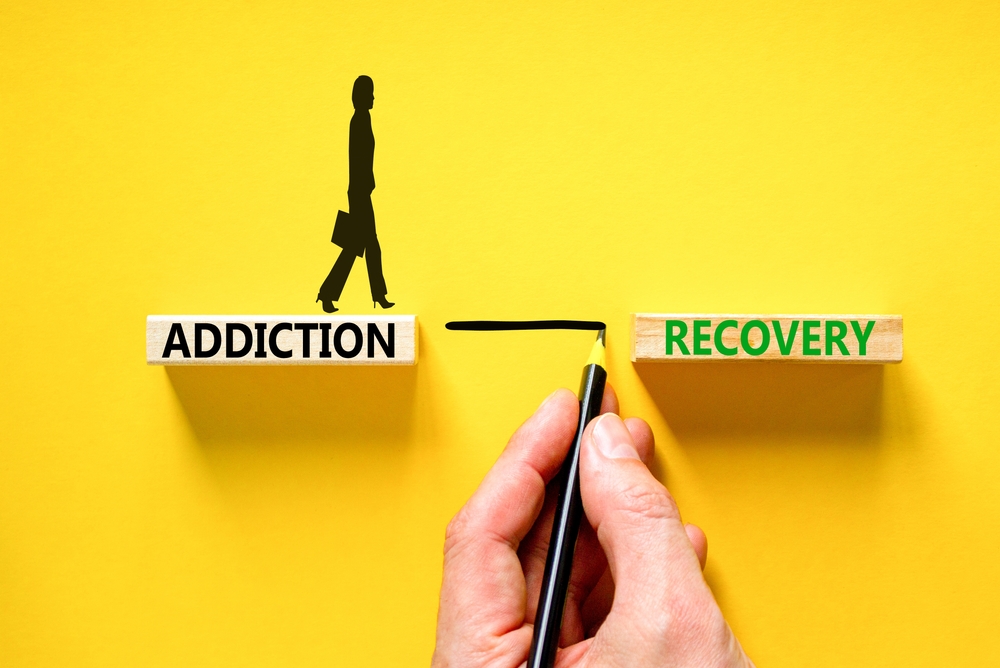
Last Updated:
May 16th, 2025
Recovery from an addiction is an ongoing process that can require a lifelong effort to sustain. There will always be days that test your resilience, but through consistent action and commitment, you can change the path you are on and step into a sober, happier future.
Addiction recovery in the “transtheoretical model”
The transtheoretical model (TTM) of addiction recovery is a theory that conceptualises behavioural changes as a series of stages. It was originally developed in the 1980s by Professor James Prochaska as a framework for people who were quitting smoking. Since then, the model has been updated and has effectively treated people across a broad spectrum of problems, including alcohol abuse, drug addiction, mental health issues and the development of exercise routines.
The proposed model presents five stages of behavioural change, which are:
- Precontemplation
- Contemplation
- Preparation
- Action
- Maintenance
These stages do not have to be linear, nor is the duration of each set in stone. Some people may pass through one stage expeditiously, or transition through each stage in perfect order, while another person needs more time in one stage, or even takes a backstep before complete change is made.
As a person endeavours to make the meaningful changes required for addiction recovery, gaining the understanding of this model can provide a point of reference or be used as an insightful tool to clarify how long they need to recover. As with any major lifestyle change, the anxieties caused by lifestyle upheaval can be soothed when we recognise where we are; in the present moment.
What are the five stages of recovery?
The Transtheoretical Model is just one proposed theory that puts forward a suggested timeline for people who go through complete drug or alcohol addiction recovery.
Countless factors can affect the length or prominence of each stage in a person’s journey, though we will include some research-backed propositions on the average length of each step.
The five stages of addiction recovery and the challenges you may face in each are:
Precontemplation stage (up to 6 months)
For many people, the pre-contemplation stage of addiction recovery functions as the first hurdle of potentially the most difficult race they will ever take part in.
A person in this stage may not see the need for a solution because they haven’t yet recognised that one exists. They may have limited awareness of the inevitable consequences and latent dangers of their alcohol or drug addiction. If the person does recognise that there is a problem, this stage is marked by resistance, defensiveness and a justification of continued substance use. In this way, the crux of this stage lies in the outside pressures of people in their lives who care about them, pushing them to seek help.
It is tragic to consider how many people may be perpetually caught in pre-contemplation who don’t have the love and support around them to promote a change. Until such an insight is given to the person, ambivalence becomes the invisible barrier to positive change. Precontemplation may have no marked beginning or end, though research from the original study suggests that a person in this stage does not intend to change in the next six months.
Contemplation stage (6 – 12 months)
The second stage is conscious contemplation of behavioural change, with the person recognising that problems stemming from an addiction exist. The person in need of help will weigh up the pros and cons of quitting, with a reflection of how their drug or alcohol addiction negatively impacts their life.
This stage is full of mental conflict. The desire to change becomes real, yet the fear of significant change sadly underscores it. A person can fall into “cognitive distortions” as they contemplate, hindering the process of change. For example, they may ruminate on how they’ll lose friends and relationships or feel lost without the substance in question. The person may begin to vacillate, meaning one day they’re ready to take action, and the next day they’re paralysed by spectres of doubt.
While some people make quick strides through this stage, many remain in contemplation for prolonged periods. Some behavioural research suggests that people decide to make a change within the next six months to one year.
Preparation stage (3 months)
This is the stage in which a harmony is created between intention and action. The recognition has been processed and the person deeply understands that changes will be beneficial. In this stage, small steps are taken to prepare for change and people often start to conduct their own research. They gather information from broad sources on the changes they can expect.
One dangerous aspect is that some people can skip or pay too little heed to this stage, trying to move directly from contemplation to action. The research made in this stage can be highly beneficial for adjusting to upcoming lifestyle changes and escaping addiction for good. Sources for mental health well-being propose that people in this stage prepare for a change in the next one to three months.
Action stage (around 6 months)
The action stage is marked by conscious and deliberate efforts to change behaviour. Some behavioural targets may have already been met, such as abstaining from alcohol for two weeks or replacing habitual substance use with exercise for one week. For many, the most visible and direct changes are made, such as starting therapy or entering rehab for addiction recovery treatment.
The action phase can heavily affect a person’s emotions, swinging between feelings of empowerment and doubt. Strong cravings and urges to return to substance use should be targeted in preparation for sustained cessation. Old habits are broken, so the new ones need time to stabilise.
As with other stages, the duration can vary, though some research suggests that significant changes will occur in the next six months. The most critical aspect of this stage is an immense effort toward abstinence and ongoing support from peers and professionals.
Maintenance stage (6 months and ongoing)
The final stage in the Transtheoretical Model needs continual effort to prevent addiction recovery relapse. Lifestyle changes are now in place, such as exercise routines, recreational activities, improved sleep hygiene, and the attendance of support groups. In some ways, the urge to relapse may be weaker than in the action phase, with this being an important time to celebrate milestones that reinforce sobriety.
Research generally proposes that the maintenance phase can be marked after six months of substance cessation and up to 5 years thereafter. Some people can hit the 6-month sober milestone and reach the point where they never relapse, while others need a commitment of two to five years to break through and solidify change truly.
Tips for maintaining lasting sobriety
Maintaining sobriety after recovery means building a lifestyle that supports long-term well-being. As we have seen, the process of behavioural change and upholding lasting sobriety is unique to each individual.
There are some small steps to take that will support ongoing sobriety:
- Stay connected: Don’t lose connection with people who were there for you during recovery, whether that’s friends, family, or support groups in rehab.
- Keep a routine: Structure brings stability. Journaling and logging the progress of healthy habits will help you manage stress and give a deeper sense of purpose.
- Recognise your triggers: Psychologists advocate for changing “People, places and things” for people in recovery. This involves adjusting and removing stimuli that your brain associates with the substance you are working away from.
- Be kind to yourself: Our last recommendation is to never forget how important it is to be kind to yourself and develop practices of self-love. Recognise that setbacks can happen, but what matters most is how you respond and recommit to your journey.
Where can I find support for my recovery?
Recovery isn’t a straight path—everyone’s journey is different. But with the right support, lasting change is possible.
At UKAT, we understand the emotional and physical challenges of overcoming addiction. Our tailored treatments manage withdrawal safely and help build a structured, sober life with tools to prevent relapse. We’re here for you whether you’re just starting or maintaining your sobriety.
Take that supported step with us and reclaim a healthier, happier life—free from addiction.
(Click here to see works cited)
- Raihan N, Cogburn M. Stages of Change Theory. [Updated 2023 Mar 6]. In: StatPearls [Internet]. Treasure Island (FL): StatPearls Publishing; 2025 Jan-. Available from: https://www.ncbi.nlm.nih.gov/books/NBK556005/
- Silva, Sandra. “15 Cognitive Distortions to Blame for Your Negative Thinking.” Psych Central, Psych Central, 22 Nov. 2024, psychcentral.com/lib/cognitive-distortions-negative-thinking.
- “The Transtheoretical Model (TTM).” The Decision Lab, thedecisionlab.com/reference-guide/psychology/the-transtheoretical-model-ttm
- “The Transtheoretical Model (Stages of Change).” Habit Weekly, www.habitweekly.com/models-frameworks/the-transtheoretical-model-stages-of-change
- “Stages of Change Model.” School of Medicine, medicine.llu.edu/academics/resources/stages-change-model
- Christi Demitz, Michigan State University Extension. “Thinking about a Change? Part 4: Maintenance Stage.” MSU Extension, 21 Jan. 2022, www.canr.msu.edu/news/thinking_about_a_change_part_4_maintenance_stage.
- “Why Change People, Places, and Things in Early Recovery?” Psychology Today, Sussex Publishers, www.psychologytoday.com/us/blog/understanding-addiction/202106/why-change-people-places-and-things-in-early-recovery


